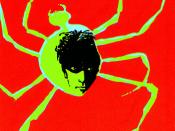"In the absence of belief in some transcendent being or ultimate (for example, God), human life lacks meaning and is not worthwhile."
This is The Meaning of Life Thesis. Early 20th century, Russian philosopher Leo Tolstoy is partial to the thesis. He believes that without a belief in a higher reality, there is no sense in living. On the other hand, E.D. Klemke, a late 20th century philosopher and professor, demonstrates that the ideal Tolstoy believes is untrue. Klemke can find alternative meaning and purpose to life without the belief in a transcendent being. However, without a blatant revelation of a higher being, there is no way to know what to believe or how to live. Through Tolstoy and Klemke's writings, they express their thoughts on the matter.
Leo Tolstoy's My Confession is an explanation of his feelings during an inner crisis and questioning about himself and the meaning of life.
His belief that life is not worthwhile or meaningful is derived from realizing that he has no answer to why he should do anything or actual motivation to live. This is blatantly portrayed through his statement on page 11: "my life is a stupid, mean trick played on me by somebody." To explain this point further, he uses an analogy through telling a story. In this story, a man is running from a beast that is attacking him. He jumps into a dry well to get away from the beast and, as he is approaching the bottom of the well, he sees a dragon with his mouth open, waiting to catch him. He grabs a branch that he sees in the well and he is hanging from it. However, there are two mice chewing at the branch and he realizes that the branch will break any minute, resulting...


